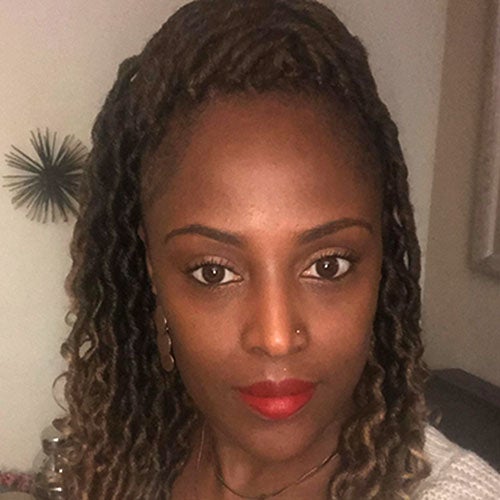Spotlight Feature

Erika Davis, Ph.D.
Manager, Community Health, Southland Region
Advocate Christ Medical Center, Oak Lawn, Ill.
Background: Advocate Christ Medical Center, based in the southwest Chicago suburb of Oak Lawn, is one of 13 Illinois hospitals and health centers recently awarded a program grant aimed at reducing disparities in health care. Through a collaboration between the American Hospital Association’s Institute for Diversity and Health Equity (IFDHE) and Blue Cross Blue Shield of Illinois (BCBSIL), the medical center received funding support to implement new diabetes education programs designed to help adult diabetes patients improve and manage their conditions. Congruent with the implementation of their diabetes education program, Advocate Christ Medical Center will collect, validate and perform an analysis of racial, ethnic and language preference (REaL) data to further advance health equity.
In this Spotlight Feature interview, Erika Davis, manager of Community Health at Advocate Christ Medical Center’s Southland Region, discusses the programs’ goals for helping patients in surrounding communities.
Why did your hospital decide to move forward with this new initiative?
Advocate Christ Medical Center has been implementing diabetes prevention programs since 2018 in partnership with faith-based institutions. We are always looking to find creative and innovative ways to engage our patients and community members who are at risk of diabetes and other conditions. African Americans and the Latinx population are primarily at-risk for Type-2 diabetes when compared to other populations and ethnicities. We wanted to include an approach that is culturally appropriate and allows individuals to have access to resources that will help them reach their healthy living goals.
“We wanted to include an approach that is culturally appropriate and allows individuals to have access to resources that will help them reach their healthy living goals.”
What are your goals and how do you anticipate your efforts will impact patients?
Our program goals are to identify areas of weakness and opportunity for each participating patient. We also want to develop patient-specific action plans to assist in reaching each participant’s health goals, provide information on creative ways to exercise and prepare food, introduce new foods, improve overall A1C levels and help patients lose weight.
Achieving these goals will provide participants with baseline knowledge and access to resources that will impact their lives long-term. We anticipate that the participants will experience weight loss, learn more about food and nutrition as well as preventative steps to avoid related chronic conditions such as hypertension and high cholesterol.
How did your community partnerships factor into efforts to build new programs?
Our community partners include faith-based institutions, federally-qualified health centers and Advocate Medical Group. Our partnerships allow us to expand these programs to a larger population and enable more community members to become involved in these services. Partnerships with our Advocate Medical Group providers allow us to provide an integrated approach to patient care. In addition, this approach provides access to resources that some patients may not otherwise have.
Does a clearer understanding of socioeconomic conditions impacting patients and other barriers to health equity help you build a better program? How?
“Our goal is to provide the appropriate resources to assist people in living and maintaining healthy lifestyles.”
Absolutely. Understanding socioeconomic conditions and how these conditions impact patients and community members help our hospital align our resources with the needs of the community. Each person may need something different in order to thrive. Our goal is to provide the appropriate resources to assist people in living and maintaining healthy lifestyles.
What information would you share with others about advancing health care equity within their organization?
Our plan to address health inequities involved the development of a community strategy that focuses on improving life expectancy for our patients through a health equity lens. In May 2019 this strategy was presented with a focus on key initiatives including but not limited to violence prevention, food security, access to behavioral health, housing, access to primary care and workforce development.
We recommend hospitals approach care from a multidisciplinary perspective integrating supportive services and clinical care to address the whole person. In addition, a model relying on community health workers has proven to be successful for many hospitals and federally qualified health centers across Illinois. Placing community health workers in hospitals can support an integrated health care model that focuses on improving health care equity.
